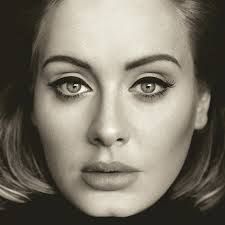Free Will
Adele's Hello: Meaning Making in Secular Ways
The Literature of Social Reflection and Meaning Making
Posted December 2, 2015

Does the world still have the same meaning and sense of sacredness in a secular world? I found the answer to this question beautifully argued and described in the book All Shining Things: Reading the Western Classics to Find Meaning in a Secular Age by Hubert Dreyfus and Sean Dorrance Kelly.
Literature and art as social reflection are probably the most powerful tools mankind has utilized to understand who we are, what we are, and where we may be going. What better time to consider how to live life as we move to a New Year and as we encounter so much strife and loss in the world?
I took a course entitled The Literature of Social Reflection that to this day stands out for me. I remember how my Professor, Robert Coles, would come into the lecture hall with the music of Billy Holiday playing, toss his sweater to the ground, and commence to talk about how we can see the world through the eyes of others via literature, photography, painting, music, and poetry. Every student should be so lucky as to have the opportunity to engage in such a class. But you don’t have to be a student to do so.
Start with the texts of Homer and Dante. Two authors who crafted an intense study of the meaning of life from different eras and cultures. The Greeks spent a great deal of time reflecting on the meaning of life and how to live life well; Dante created a structured meaning to life within the context of Medieval Christianity. Both authors examined the sacred in life.
Traditionally the term sacred means something that is considered holy. If one is a Humanist, sacredness still exists. It is something that we choose as awe inspiring; that we choose as celebratory; and that we choose as respect; not because of God, but rather because of the personal meaning we as individuals give to that sacredness.
Homer argued that all one needs to live a good life is already given and it is up to the individual to align with that given to live an excellent life. He understood the human condition well and knew that even when we are living a good life, happiness and sadness will always follow. Most of all, the good life that Homer describes is lived in gratitude and wonder (something modern-day social scientists have confirmed).
Dante “woke to find myself alone in a dark wood” – a sense that we all feel during life. Dante’s quest for a life of excellence follows the moral and spiritual precepts that exist from God moving one towards right desire and away from the wrong. Thus as much as one may be seduced by food (gluttony) for example, one has the free will to move away from seeing food as a desirable object. Dante emphasizes that all love is good as long as it is channeled in an appropriate way and from that emerges a meaningful existence.
One does not need to believe in Homer’s Greek Gods or Dante’s Purgatory to Paradise path to create meaning in life and better understand oneself and the potential of having a meaningful life. Odysseus and Dante take a hero’s journey emerging to an understanding of what is of value and important to them in life. In daily life we all are on the hero’s path to manage the antagonism we may face in order to meet with our own sacredness/meaning of a good life. All art, literature, and music move us towards this insight.
As Adele’s song Hello (it’s me; hello from the outside) plays on the radio, I am reminded how she gives us the song as a vehicle in which to reflect on who and how we are in the world.


